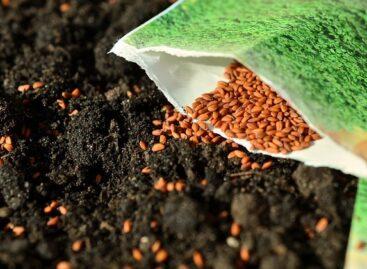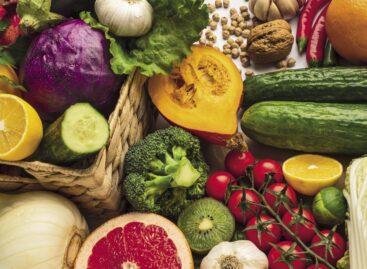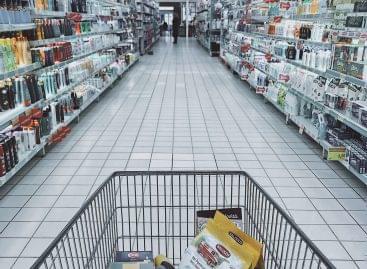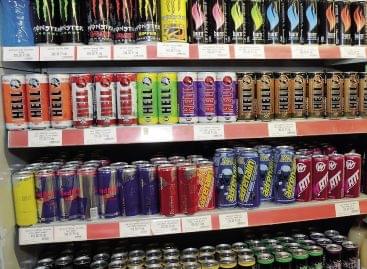Whether carbonated or still, Hungarian mineral waters are guaranteed to be of high quality
Hungarian consumers are in a lucky position, because our country is considered a mineral water superpower, so customers can choose from the products of countless smaller bottlers in addition to the big, well-known brands.
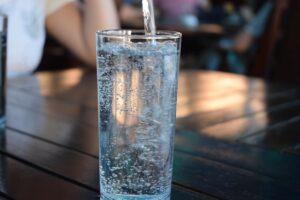
(Photo: Pixabay)
According to the overview of the National Chamber of Agrarian Economy, almost 274 mineral water wells are registered in Hungary, and the bottling plants bottle about 1200-1300 million liters of mineral water from domestic sources every year. The consumption of domestic mineral water has increased several times over the past decades, and while in the past, waters enriched with carbon dioxide were the most popular, today non-carbonated mineral water is more popular among Hungarians.
Mineral water is now one of the basic foodstuffs
It cannot be called a seasonal product, but the demand for bottled water typically increases during the summer. Domestic consumers are in a very fortunate position, as Hungary is considered a real mineral water superpower, and is one of the countries that distribute the most mineral water in Europe. The official database of domestic mineral water sources is managed by the National Center for Public Health, currently 274 recognized wells are registered. Pest and Bács-Kiskun counties can boast the most mineral water wells. While mineral water consumption was considered a luxury a few decades ago, today it is part of our everyday life, and this is also the reason why domestic mineral water consumption has increased significantly. While in the 1980s per capita consumption hovered around 3 liters per year, today it exceeds 130 liters. Domestic mineral water consumption with this value is among the top five countries in the European Union. On a national level, about 1,200 – 1,300 million liters of mineral water are sold on the market every year.
The increase in consumption is also due to the fact that more and more people are recognizing the beneficial effects of mineral water consumption
Natural mineral water is Hungary’s national treasure. Mineral water is naturally pure, free from all chemical and microbiological contamination, natural food, and contains minerals, macro- and micro-elements in a composition and quantity favorable to the functioning of the human body.
The quality of mineral waters is guaranteed by strict rules
In addition to the regular, official inspections, the constant inspections of the bottling companies in their own chemical and microbiological laboratories also ensure the constancy of quality. The vast majority of domestic bottled water is mineral water, in addition, bottled spring water, drinking water and various fortified and flavored water-based drinks are on store shelves. Although imported waters also appear in the offer, their proportion is negligible, the vast majority of customers can find bottled mineral waters of domestic origin in the stores.
It is interesting that until the middle of the last decade, the demand for mineral waters enriched with carbon dioxide was the determining
Nowadays, more people are consuming the non-carbonated version: in 2019, this type accounted for 57 percent of the total consumption. In terms of its effect on health, it doesn’t matter whether you drink carbonated or non-carbonated mineral water. The 0.5-1.5 liter packaging is the most popular in retail, while the 0.25-0.5 liter packaging is the best-selling in catering. Although balloon mineral waters are also consumed in households, and this solution can be found mainly in the workplace, balloon packaging accounts for less than one percent of all bottlings. Traditional, big brands are available throughout the country, while lesser-known, new waters add color to the offer in the bottler’s catchment area.
NAK
Related news
In the interest of varietal purity and crop safety, the proportion of metal-sealed eared seeds should be increased
Due to the difficulties in growing corn, winter wheat, grown…
Read more >How can toxin contamination of cereals be prevented?
Although the harvest of cereals is already upon us, it…
Read more >Germany’s largest study on vegetarianism and vegan nutrition launched
Plant-based diets are becoming increasingly popular worldwide: more and more…
Read more >Related news
What makes us add the product to the cart – research
The latest joint research by PwC and Publicis Groupe Hungary…
Read more >Energy drinks are now legal: what every shopkeeper should know
New regulations on the sale of energy drinks came into…
Read more >Tens of millions with one opening tab – the biggest prize draw in XIXO history has started
This summer, XIXO is preparing for a bigger launch than…
Read more >
